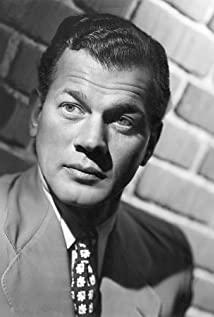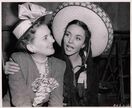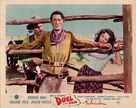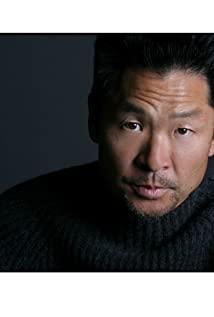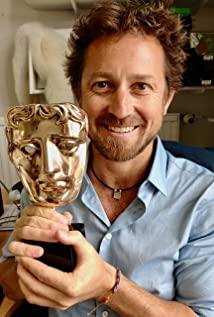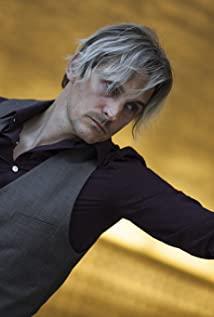In 1930, Joseph Cotten was an assistant stage manager in New York City. In the same year, Joseph Cotten performed on Broadway for the first time, and continued to star in Broadway works in the following years, such as "The Absent Father" and " Jezebel " in 1932 . During this period, Cotton got married for the first time. In order to increase family income, in addition to drama work, he also participated in auditions and performances for various radio programs
. In an audition for the Columbia Broadcasting System radio show, he met a young man who would change his career: Orson Welles
. Although Wells was ten years younger than Cotton, the two quickly established a friendship
.
In 1937, Joseph Cotten joined Orson Welles ' Mercury Theater Company, which became one of the most successful theater companies in New York City
. Starring in plays such as " Shoemaker's Holiday " and "Caesar" (Wales was greatly influenced by Shakespeare's plays)
. In 1938, Cotton made his first screen appearance in the film "Too Much Johnson". In 1939, Joseph Cotten performed with Katharine Houghton Hepburn in the popular Broadway play " Philadelphia " . The performance was well received, but when the play was adapted into a movie version , Cotten 's role was handed over to Cary Grant
.
In 1941, Orson Welles signed a three-film contract with Radio Keith Orpheum
, with actors from the Mercury Theater starring in his first feature film " Citizen Kane ", which described the life of a newspaper tycoon. Dunn plays a drama critic Jeddia Lenan, who is the best friend of the protagonist Charles Foster Kane
. The film was written, directed and starred by 25-year-old Orson Welles, and later became one of the most respected movies in Hollywood history
. Due to the political controversy surrounding the film, the film did not achieve commercial success
. In the same year, Joseph Cotten and Estelle Merle O'Brien Thompson starred in the movie " Lydia ".
In 1942, Joseph Cotten co-starred in the feature film " The Magnificent Ambersons " directed by Orson Welles with Dolores Castro and Anne Baxter , playing Eugene Morgan. The film established Cotton’s romance on the screen. The image of the male protagonist in a romance film
. In 1943, Joseph Cotten co-starred with Muriel Teresa Wright and Macdonald Carey in the psychological thriller " Shadow of a Doubt " directed by Alfred Hitchcock , playing the serial killer uncle Charlie who fled to his hometown, although the film was not commercially available when it was released. Successful, but received very positive reviews
. In the same year, Joseph Cotten starred in the wartime thriller "Journey of Fear" directed by Orson Welles.
In 1944, Joseph Cotten, Ginger Rogers , Shirley Temple starred in the feature film "I Want to See You" directed by William Dieterle and George Cukor ; in the same year, Joseph Cotten co-starred with Lily , Jennifer Jones , Shirley Temple and directed by John Cronwell. The war drama " Since You Went Away " helped Lily survive the wartime misery; and, Joseph Cotten co-starred in the suspense thriller " Galight " directed by George Cukor with Ingrid Bergman and Charles Boyer , as the young detective Berlin .
In 1945, Joseph Cotten and Jennifer Jones starred in the love mystery film " Love Letters " directed by William Dieterle , playing the role of warrior Alan Quentin. In 1946, Joseph Cotten co-starred with Gregory Peck and Jennifer Jones in the Western film " Duel In The Sun " directed by Kim Widow . In 1947, Joseph Cotten and Loretta Young co-starred in the comedy "The Farm Girl", playing the role of young councillor Glenn Morey.
In 1948, Joseph Cotten co-starred with Jennifer Jones and Lillian Gish in the romance film " Portrait of Jennie " directed by William Dieterle . Cotton played the artist Eben Adams
and won the best of Venice International Film Festival for his role in this film. Actor Award. Later, Joseph Cotten co-starred in the mystery thriller " The Third Man " with Orson Welles. Cotten played the cynical novelist Holly Martins
in the film. This film has achieved great commercial success
. Cotton's acting career reached its peak in the movie "The Third Man", after which Cotton's film career gradually declined. Although Cotton still plays the leading actor, the movies he starred in have a small budget and most of the scripts are not good
.
In 1949, Joseph Cotten starred in two very unsuccessful films, with Bette Davis in the noir film " Beyond The Forest " directed by Kim Widow . This film is called Bette Davis's worst film
. In the same year, Joseph Cotten and Ingrid Bergman co-starred in the feature film " Under Capricorn " directed by Alfred Hitchcock . This film was very popular in France, but it was dismal in the US box office, ranking 90th in the box office
. This film is one of the few failed works by director Hitchcock
. After that, Cotton continued to play a series of disappointing roles
.
In 1950, Joseph Cotten and Joan Fontaine starred in the romance film " Autumn Love " directed by William Dieterle . The film "Beijing Express" filmed in 1951 was a poor attempt at the film " Shanghai Express " of 1932 . In 1952, Joseph Cotten and Shelley Winters co-starred in a non-existent western film "Untamed Frontier"
. In 1953, Joseph Cotten co-starred with Marilyn Monroe and Jean Peters in the noir film " Splendid Life " directed by KHenry Hathaway . He played a capricious husband. This was the most exciting role of Joseph Cotten in the 50s. In the same year, Cotton returned to New York City, starred in the Broadway play " Sabrina ", when the play was adapted into a movie, Cotton once again be a bigger star Humphrey Bogart replaced
.
In the 1950s and 1960s, when Joseph Cotten's film career was in trouble, Cotton began to turn to TV shows, appearing on "Joseph Cotten Show" and other shows. In the following decades, he also participated in a series of TV and film projects
. From 1956 to 1957, Joseph Cotten appeared in the court anthology "The Trial". In 1958, Joseph Cotten starred in the movie "Touch of Evil". In 1961, Joseph Cotten and Kirk Douglas starred in the movie "The Last Sunset", playing an alcoholic farmer
. In the early 1960s, Cotton had been busy in his television career
.
In 1964, Joseph Cotten returned to the screen after leaving the movie for a while, cooperating with Bette Davis and Olivia de Havilland in the Gothic psychological horror film " Hush... Hush, Sweet Charlotte " directed by Robert Aldrich as a villain
. For the rest of Cotton's career, he will make one or two films every year, many of which are European films, and many are uncreative and ordinary B-movies
.
In the popular disaster film in the 1970s, Joseph Cotten starred in the 1970 war epic " Tora! Tora! Tora! ", which chronicled the Japanese attack on Pearl Harbor
. In 1973, Cotton played a supporting role in the science fiction thriller " Soylent Green "
. In the early 1980s, Cotton continued to star in horror films and TV series, starring in the 1980 movie " Heaven s Gate ", which is considered one of the worst movies ever
. In 1982, Joseph Cotten starred in the horror film "Survivor", which was the last film Cotten starred in, and then entered a peaceful retirement life
.
